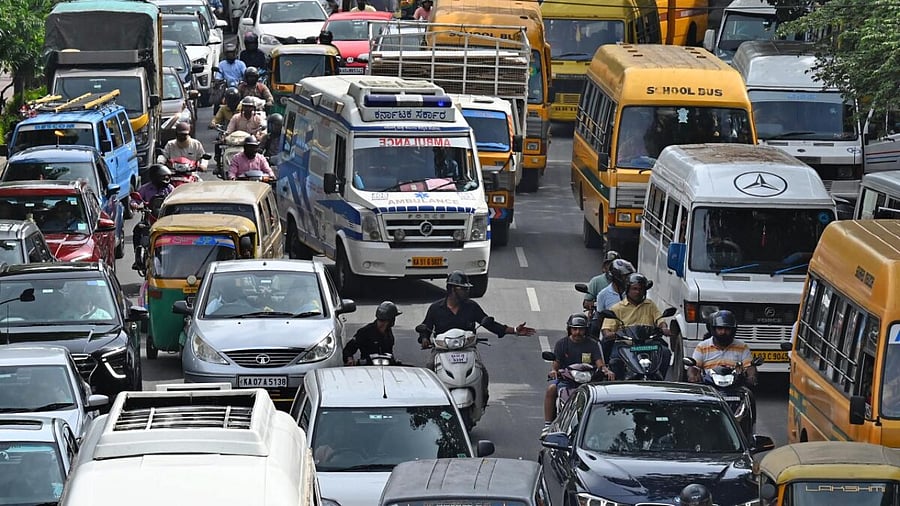
Just as the Deputy Chief Minister D K Shivakumar-led team is planning a Singapore trip to study the design and efficacy of tunnel roads, mobility experts are questioning the state government’s focus on such expensive projects.
The projects do not address Bengaluru’s traffic congestion issues effectively, they say, as they urge speedy approvals of the metro line expansion, swift implementation of suburban rail projects, and increased funding for buses.
While the Singapore trip with the BBMP and BDA officials is being finalised, recent government meetings have focused on proposals to build tunnel roads to decongest critical junctions.
Experts argue that tunnel roads only cater to car users, while nearly 50 per cent of Bengaluru’s population relies on public transport such as buses and the metro.
Prof Ashish Verma, head of the transportation engineering research lab at the Indian Institute of Science (IISc), pointed out that cars constitute only 10 per cent of Bengaluru’s total traffic, stressing that underground metro is more feasible. He said a single-lane tunnel road can accommodate 1,800 passengers per hour per direction, whereas the metro can serve 69,000 passengers when trains run every 1.5 minutes. Tunnel roads also introduce traffic bottlenecks at entry and exit points, causing significant congestion.
Sandeep Anirudhan, president of Citizens' Agenda for Bengaluru, urged Shivakumar to learn from Singapore, which has strengthened public transport and disincentivised ownership of cars, and where high taxes on car purchases have led to a majority of people relying on public transportation.
The forum said Singapore has only 10 lakh private vehicles, but over 30 lakh daily riders on the metro rail network. Bengaluru has close to one crore private vehicles (23 lakh cars and 73 lakh two-wheelers), while the metro caters to only around six lakh people.
Notably, over four crore people in Tokyo use public transport. “While a majority of people in Singapore and Tokyo use public transport, a large chunk of people in Bengaluru use private vehicles,” he said, urging quick measures to make public transport attractive.
Srinivas Alavilli, co-founder of Citizens for Bengaluru, called on the government to increase the bus fleet, citing a severe shortage even before the introduction of the Shakti scheme.
The draft Master Plan of Bengaluru 2031, prepared by the Bangalore Development Authority (BDA), predicts a further decrease in public transport usage in the city from the current 47 per cent to 36 per cent.
